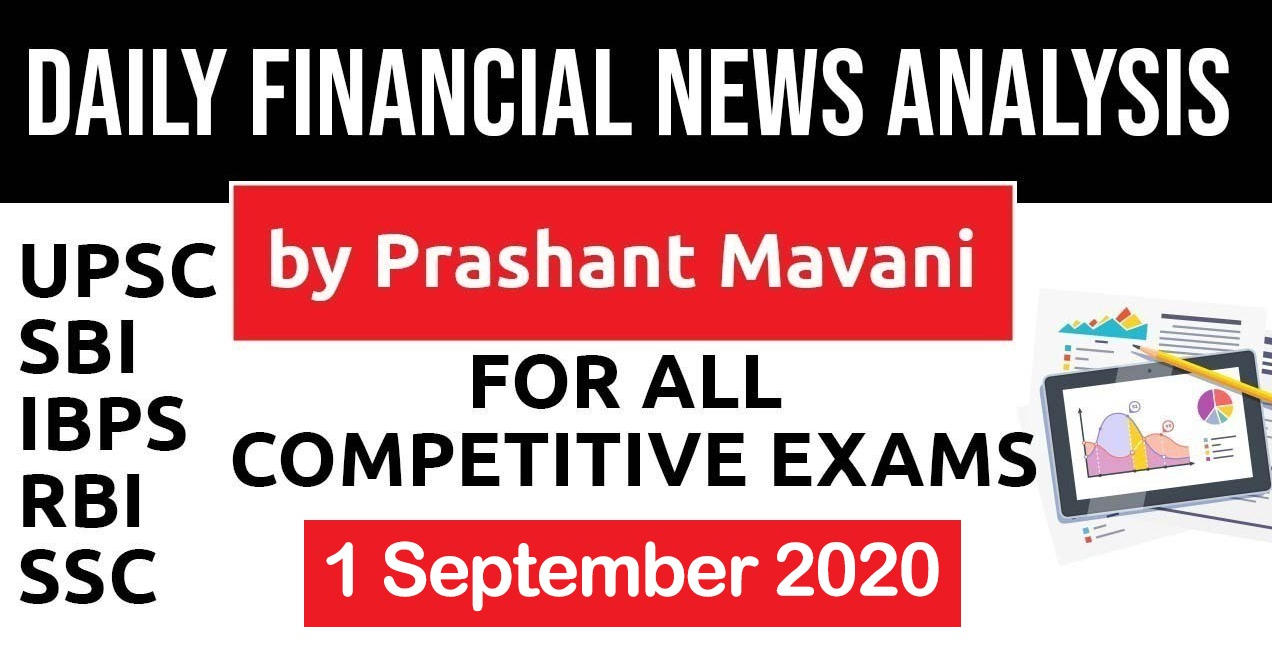Table of Contents
GDP contraction
- Indian economy shrank in the April-June quarter by 23.9%.
- Gathering of data was disrupted by the pandemic, resulting in improvisations.
- Moreover, formal sector data is used extensively to proxy the fortunes of the informal sector.
- India is possibly the worst performer among major economies.
- China expanded its economy by 3.2% in April-June.
- The UK was among the worst hit, witnessing a contraction of 20.4%.
- The US, the world’s largest economy, shrank by a manageable 9.5%.
- India’s situation is unconscionable, as it’s also low down in terms of per capita income.
- Agriculture expanded by 3.4%
- Construction shrunk by 50.3%
- Manufacturing shrunk by 39.3%
- The bulk of non-financial services sector such as hotels and trade shrank by 47%.
- Government must move to revive the economy on a war footing.
- The only support for the economy came through an expansion of government consumption by 16.35% to Rs 4.86 lakh crore.
- The way out is for government to take the lead in reviving investment through public infrastructure projects.
- This can crowd in private investment and start a virtuous cycle.
Principal Payment Relief
- Banks and shadow lenders may offer a sixmonth moratorium on principal repayments for retail and MSME borrowers as part of the one-time restructuring of loans that the central bank recently allowed.
- Customers seeking a debt revamp will be asked to make regular interest payments, while the principal will be restructured or the tenor extended, depending upon repayment ability.
- The tenor to repay principal debt would be expanded, but since we are already coming out of a six-month moratorium, we can’t have a policy that allows further leeway in paying interest payments.
- According to a report by India Ratings, at least ₹2.1 lakh crore (1.9% of banking credit) of retail loans that could turn into nonperforming assets (NPAs) may undergo restructuring.
- On an overall basis, about ₹8.4 lakh crore of total bank credit could be restructured.
- Recent capital raise by banks and NBFCs will further improve their shock-absorption capacity and could come handy when growth revives in FY22 as risk-aversion recedes.
GST Compensation
- Opposition-ruled states will seek Prime Minister Narendra Modi’s intervention on the issue of the goods and service tax shortfall compensation, unhappy with the Centre’s offer of two borrowing options.
- Andhra Pradesh, Tamil Nadu and Odisha are likely to join Delhi, Punjab, Kerala, West Bengal, Chhattisgarh, Jharkhand, Maharashtra, Rajasthan and Puducherry in rejecting the options and asking the Centre instead to borrow and compensate the states.
- The states will hold further talks after meeting the finance secretary and expenditure secretary on Tuesday to clarify the Centre’s offers.
- The states would bear the interest burden while the principal would be serviced by the compensation cess, which is levied on sin and luxury products such as cigarettes and specified categories of automobiles.
Eight core industries’ output contracts 9.6% in July
- Contracting for the fifth consecutive month, the output of eight core infrastructure sectors dropped by 9.6 per cent in July due to decline mostly in production of steel, refinery products and cement.
- The production of eight core sectors had expanded by 2.6 per cent in July 2019.
- Barring fertiliser, all seven sectors — coal, crude oil, natural gas, refinery products, steel, cement and electricity — recorded negative growth in July.
- During April-July 2020-21, the sector’s output dipped by 20.5 per cent as compared to a growth of 3.2 per cent in the same period previous year.
- The eight core industries accounts for 40.27 per cent in the IIP.
- Commenting on the numbers, ICRA Ltd Principal Economist Aditi Nayar said that based on the available trends for the core sector, auto production and merchandise exports, “we expect the contraction in the Industrial Index of Production (IIP) to ease to 7-11 per cent in July 2020 from 16.6 per cent in June 2020”.
NHAI Awarded 26 Projects
- The National Highways Authority of India (NHAI) on Monday said it has awarded projects worth Rs 31,000 crore in the first five months of the current fiscal year, despite challenges posed by the COVID-19 pandemic.
- A total of 26 projects for building 744 km length of highways were awarded during the April-August period of this fiscal.
- 676 km in FY 2019-20, 368 km in FY-2018-19 and 504 km in FY 2017-18
- Capital cost of these 26 projects is over Rs 31,000 crore, which includes cost of civil construction, land acquisition and other pre-construction activities.
- The NHAI said it has set a target of awarding 4,500 km of highway projects during the current fiscal and is likely to exceed the same.
- In the first quarter of the current fiscal, the NHAI said it has disbursed more than Rs 15,000 crore to the vendors.
- Additionally, steps such as monthly payments to the contractors were taken and such moderations saw an encouraged participation from the bidders resulting in spiralling effect on the growth of the road sector.
Download Free PDF






















 WhatsApp
WhatsApp